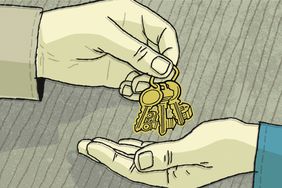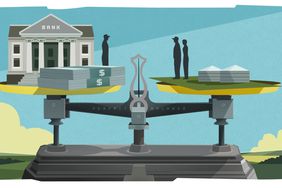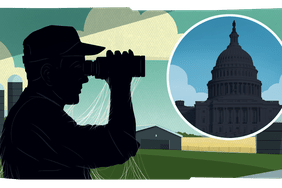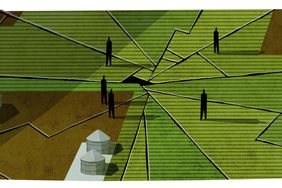:max_bytes(150000):strip_icc()/Lowering-Estate-Tax-with-Annual-Gift-Tax-Exemptions-56a093d73df78cafdaa2dbf0.jpg)
For the fourth time in my 18-year-career, farmers are being warned of the repeal of the federal estate tax exemption. Should you be worried about the “Repeal Boogeyman” this time?
Before addressing the Repeal Boogeyman more, let’s look at where things stand with the federal estate tax exemption.
Next year, any person with a pulse will be able to shield $13,610,000 from the federal estate tax. Together, a married couple can shield $27,220,000. In 2025, this amount will increase until the estate tax D-Day/Armageddon hits on Jan. 1, 2026.
On that date, the exemption amount will revert to $6,800,000 and be “adjusted for inflation.” With the high rate of inflation we have seen over the past few years, many believe, when adjusted for inflation, the new exclusion amount will be around $7.5 million per person. If this is the case, even if the Repeal Boogeyman has his way, a married couple can still protect a hefty $15 million.
The intent of this article is not to downplay the significance a federal estate tax bill could have on a farming operation. Rather, it is to encourage people to be realistic and not get scared into taking action that may be unnecessary, expensive, and not in their farm operation’s best interest from a succession planning standpoint.
Past would-be boogeymen
- Version 1.0 of the Repeal Boogeyman came in the mid to late 2000s. However, the decade started with a $675,000 exemption and ended with a $3.5 million exemption available. Thus, the Repeal Boogeyman never fully materialized.
- Version 2.0 came when Obama was elected. Still, the exclusion went from $3.5 to roughly $5.5 million during his presidency. Again, no Repeal Boogeyman materialized.
- Version 3.0 arrived when Biden was elected president. No changes were made. No Boogeyman.
- Version 4.0 is the now being talked about because the current law is set to sunset (expire) on Jan. 1, 2026. Many are saying this is when the Repeal Boogeyman will materialize and lead his minions across the fruited plains plucking value from all family farms, ruining farms, and a whole host of other unpleasantness.
Fear-mongering tactics
As was the case during versions 1.0 through 3.0 of the Repeal Boogeyman, fear mongering has already started far in advance — almost two years ahead of the date of the possible repeal. I’ve heard radio advertisements warning of the Repeal Boogeyman, especially by one outfit claiming that if farmers have around $7 million in assets, they should probably be looking at doing something.
I question this because, as stated, for married couples the worst scenario likely is a combined $15 million exemption. Are farm assets going to rise by 100% anytime soon? A simple internet search of “estate tax sunset” yields more websites than I would care to visit engaging in electronic handwringing of the possible return of the Repeal Boogeyman. One website even says attorneys, CPAs, appraisers, insurance advisors and other estate planning professionals are already busy, and they will “become overloaded as the deadline approaches.” This makes me wonder: if these people are so busy already, why are they advertising and ringing the Repeal Boogeyman alarm bell?
Sadly, many whipping up these fears are advising of estate planning tactics that are not only unnecessary and expensive, but also are not the best tools for farm transition or succession. I’ve heard suggestions of irrevocable trusts, gifting all your assets away now, and a host of other forms of advice that undoubtedly would have little interest to people if not for the Repeal Boogeyman.
The myth of estate taxes
Now, could the estate tax exemption sunset and instead of roughly $27 million in exemption a married couple could “only” have $15 million? Sure. But I cannot help but think back to a seminar I was in years ago given by the late, great, Neil Harl, Iowa State professor and expert on farm tax law.
In the seminar, Harl spoke how he and others tried to find an instance where a farm in this Country had to be sold to pay estate taxes and they could not find one. (Harl said the worst case they found as far as tax liability was a farmer who passed away and had not paid taxes in 10 years.)
In 2020, the USDA reported that 0.16% of farmers who died — around 50 in total — owed an estate tax. Think about that for a minute. In the entire country in 2020, only about 50 farms had an estate tax liability. So, there surely are instances where there is a tax to be paid.
The million dollar question is what was not done — that could have been done — to minimize or eliminate the tax liability? I am willing to bet that out of the 50 farm estates that had to pay federal estate tax in 2020, the vast majority (if not all) could have utilized more tools to reduce the value of their estate and thus eliminate, or at the very least greatly reduce, any federal estate tax liability.
Farmers need to be aware of the estate tax and the possible sunset in 2026, but they should refrain from getting scared into unnecessary and expensive estate planning products. Besides, I believe issues such as nursing home costs, family estate disputes, fairness issues, and a whole host of other things can sink the transition of a farm operation before a federal estate tax bill will.
What should you do?
First, look at your overall estate value. Are you over $15 million in assets if you’re married or $7.5 million if you’re single? Could you fall into this category in the next few years if land and equipment prices continue to rise?
If the answer is no, then unless your land appreciates so much you are over the exemption, you win the lottery, or something else raises your estate value significantly, it is highly unlikely you will have an estate tax issue if the law sunsets in 2026. So, go on with your life.
If you are close to or over $15 million, explore some of the basic farm estate planning tools that can be utilized to hedge against having a federal estate tax liability:
- Gifting: Each year, there is a “freebie” amount of cash, cats, cows, or whatever, that a person can gift to another person without any tax to either person. For 2023, this amount is $17,000. Meaning, parents can gift each child a combined $34,000 in assets. If they want to go above this amount, they can, as lifetime gifting exemption mirrors that of the federal estate tax exemption. So, people have the ability to gift millions to each of their children without any tax, but they have to file a gift tax return. Gifting some of your net worth not only lowers your estate value, but also reduces the overall appreciation of your estate in later years. Better yet, setting up LLCs and gifting interest in these companies means you get to keep control of the assets, and for the most part, income. So, you can reduce the overall value of your estate with little to no impact on your life.
- Valuation discounting: Another method to shrink down the size of an estate is to engage in valuation discounting. For example, if you have an LLC or corporation, and where no member or shareholder has 50% or more ownership, the value of the LLC or corporation can be discounted for estate tax purposes due to “lack of marketability” by being a small, closely held family company. In addition, a discount can be taken for “lack of control” because if the company rules call for a majority vote on decisions, and no one person has over 50%, there could be gridlock without at least two people joining in on a particular vote. Generally, these discounts, as well as others, can see the value of the company cut in half. Thus, it is entirely possible that, under the right circumstances, a farmer with $25 million in assets could be worth only $12.5 for estate tax purposes.
- Section 2032A: Section 2032A of the IRS Code is another tool that is easy to use and readily available to farmers. Generally, assets included in someone’s estate are valued at their highest and best use for estate tax purposes. However, if certain conditions are met, the property will qualify for a reduced value based on its actual special use. An election of the special-use valuation is used to reduce the value of qualified real property included in the gross estate of a person. Qualified real property typically is a farm or real property used in a business or trade. For a farmer passing away and leaving land to a farming heir, the value of the land can be cut drastically for estate tax purposes by invoking special use valuation.
These planning tools pack a tremendous punch, are easy to use, and when combined, can squeeze the value of an estate for tax purposes down tremendously. If more squeezing is needed, there are several other estate planning tools that can be utilized.
The good thing about these simpler tools is in addition to reducing estate tax liability, they can help with farm transitions. They can also play a part in addressing things such as nursing homes, fairness, family estate disputes, and other unpleasantness that, again, in my opinion, can have much more of an impact on a farm than the “maybe” that the federal estate tax brings.
Keep a big-picture view
While it is important to stay informed on potential changes in the estate tax exclusion and whether or not they will impact you, it is equally important not to be swayed into unnecessary and expensive estate planning tools by individuals selling fear of the Repeal Boogeyman. Many of them are peddling what I would call “extreme” estate planning tools that undoubtedly do work well for reducing federal estate tax exposure, but are often so “nuclear” they erode the effectiveness of the simpler tools that work best for farm transition.
Simply put, don’t focus on the estate tax tree and miss the entire farm succession/transfer forest.
Talk with your professionals and run some scenarios as to the potential amount of your estate’s value in the future and what your estate’s tax liability would be if there is a sunset of the law. From there, if the scenarios show your estate would have estate tax liability, see if some of the above planning tools will keep your estate within the allowable estate tax exemption even if the law sunsets.
Remember that even if the law sunsets and your estate is over the allowable estate tax threshold, these tools can be utilized at that point to lower your estate value. Unless a person dies shortly after the time the law sunsets (if it sunsets at all), they can spring into action and go to work lowering the value of their estate.
If your professionals say these tools should keep you below the tax threshold, then utilize the tools, go on with your life, and tell the Repeal Boogeyman to go away.
These articles are for general information purposes only and should not be construed as specific legal advice or to create an attorney-client relationship. Laws vary among states and information contained in this article may not be applicable to your state. If you have a legal issue, you should contact an attorney.
John J. Schwarz, II, is a lifelong farmer and has been an agricultural law attorney for 18 years and is passionate in helping farm families establish succession plans. He can be reached at 844-FARMLAW and www.thefarmlawyer.com. Go to www.farmlegacy.blogspot.com for past articles.









